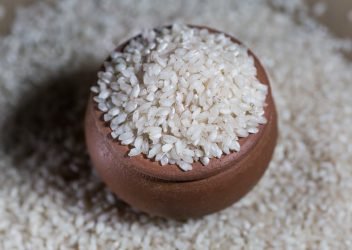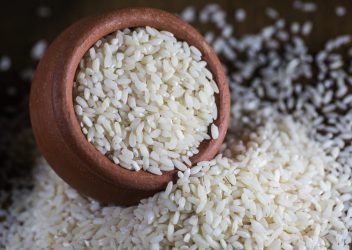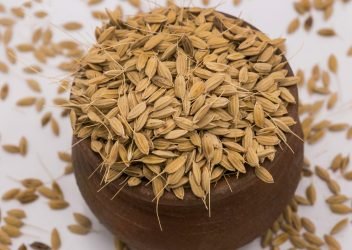Every Grain Matters
Welcome to Namma Nellu. A programme to conserve rice biodiversity of Tamil Nadu
Every Grain Matters
Welcome to Namma Nellu. A programme to conserve rice biodiversity of Tamil Nadu
Conserving agrobiodiversity for food and nutritional security for all
Conserving agrobiodiversity for food and nutritional security for all
Traditional Rice Varieties
Discover our diverse range of traditional rice varieties.
Conservation Efforts
Centre for Indian Knowledge Systems (CIKS) has collected more than 160 indigenous varieties
During the course of our work for the last 30 years on traditional seed conservation, we have collected more than 160 varieties of paddy suitable for cultivation in Tamil Nadu. We have a network of farmers who cultivate and conserve them year after year.

Contribute to Namma Nellu’s vision
Conserving agrobiodiversity for food and nutritional security for all
FAQs
Here you will find answers to most of the common questions you may have about us and our work. If you still can’t find the answer you are looking for, just contact us.
You can support Namma Nellu campaign by making a donation through the Namma Nellu website established by CIKS or through the bank account details that are given in our website. Your contribution will go towards the conservation of traditional rice varieties. The amount required to support one TRV is Rs. 15,000/- (Rupees Fifteen Thousand Only) in one single location. Typically, for reasons of safety, CIKS aims to conserve each variety in at least two locations, so that a variety is not lost due to an extreme weather event (such as unusually heavy rainfall) in a single location. You can consider offering support for the conservation of any number of varieties based on your interest and the funds that you can donate. You can also donate for sponsoring an event or provide general donations to Namma Nellu inorder to support purchase of equipments machineries, cattle, organic inputs and Technology resource centre maintenance. If any corporate would like to collaborate with us on CSR sponsorships please get back to us at nammanellu@gmail.com. We will be happy to discuss with you and take it forward. To know more click this link.
The program started with the vision ‘Conserving agrobiodiverity for food and nutritional security for all’ and our mission is to conserve and upscale cultivation and marketing of atleast 100 nutritionally and therapeutically important traditional rice varieties of Tamil Nadu and make available good germplasm of all these varieties in a decentralized fashion and create a network for the same. The Namma Nellu program encompasses a diverse range of activities aimed at conservation, upscaling cultivation, seed production, as well as conducting research to document the agronomic, nutritional, and therapeutic properties of traditional rices. The activities also extend to conducting capacity building trainings for cultivation and seed production, conducting research on TRV processing, production of inputs for organic farming, publication of education materials and books on TRVs, marketing initiatives, value addition and creating awareness about TRVs among the wider public. To know about all our activities Click here
A comprehensive field survey is conducted across all regions of Tamil Nadu to source seed samples of traditional paddy varieties that are new to our collection.
Please write to us at nammanellu@gmail.com and we will respond back to you and let you know about the available seeds and where it can be procured from.
Traditional Rice Varieties
Discover our diverse range of traditional rice varieties.
Conservation Efforts
Centre for Indian Knowledge Systems (CIKS) has collected nearly 160 traditional rice varieties
During the course of our work for the last 30 years on traditional seed conservation, we have collected more than 160 varieties of paddy suitable for cultivation in Tamil Nadu. We have a network of farmers who cultivate and conserve them year after year.

Contribute to Namma Nellu’s vision
Conserving agrobiodiversity for food and nutritional security for all
FAQs
Here you will find answers to most of the common questions you may have about us and our work. If you still can’t find the answer you are looking for, just contact us.
You can support Namma Nellu campaign by making a donation through the Namma Nellu website established by CIKS or through the bank account details that are given in our website. Your contribution will go towards the conservation of traditional rice varieties. The amount required to support one TRV is Rs. 15,000/- (Rupees Fifteen Thousand Only) in one single location. Typically, for reasons of safety, CIKS aims to conserve each variety in at least two locations, so that a variety is not lost due to an extreme weather event (such as unusually heavy rainfall) in a single location. You can consider offering support for the conservation of any number of varieties based on your interest and the funds that you can donate. You can also donate for sponsoring an event or provide general donations to Namma Nellu inorder to support purchase of equipments machineries, cattle, organic inputs and Technology resource centre maintenance. If any corporate would like to collaborate with us on CSR sponsorships please get back to us at nammanellu@gmail.com. We will be happy to discuss with you and take it forward. To know more click this link.
The program started with the vision ‘Conserving agrobiodiverity for food and nutritional security for all’ and our mission is to conserve and upscale cultivation and marketing of atleast 100 nutritionally and therapeutically important traditional rice varieties of Tamil Nadu and make available good germplasm of all these varieties in a decentralized fashion and create a network for the same. The Namma Nellu program encompasses a diverse range of activities aimed at conservation, upscaling cultivation, seed production, as well as conducting research to document the agronomic, nutritional, and therapeutic properties of traditional rices. The activities also extend to conducting capacity building trainings for cultivation and seed production, conducting research on TRV processing, production of inputs for organic farming, publication of education materials and books on TRVs, marketing initiatives, value addition and creating awareness about TRVs among the wider public. To know about all our activities Click here
A comprehensive field survey is conducted across all regions of Tamil Nadu to source seed samples of traditional paddy varieties that are new to our collection.
Please write to us at nammanellu@gmail.com and we will respond back to you and let you know about the available seeds and where it can be procured from.
Supporting the cultivation of Traditional Rice Varieties (TRV) encompasses vital aspects of organic farming. Your generous contribution can facilitate the acquisition of processing equipment, crucial for efficiently handling TRVs on a small scale while preserving their unique characteristics. Additionally, supporting sustainable agriculture involves acquiring cattle which is essential for various organic farming practices in the Indian context. Financial assistance can also address the shortage of timely and sufficient inputs for organic farming, promoting the widespread adoption of organic farming methods. While there is no possibility of adopting a specific farmer, your contribution directly benefits countless farmers in multiple ways. We do not encourage supporting/adopting individual farmers.




